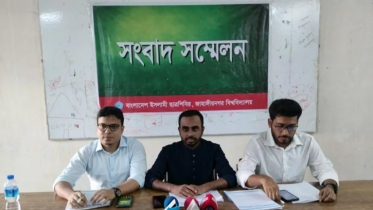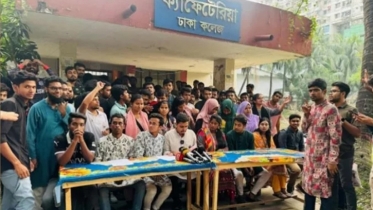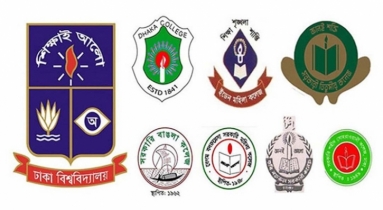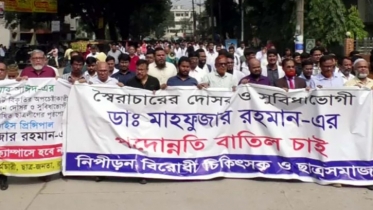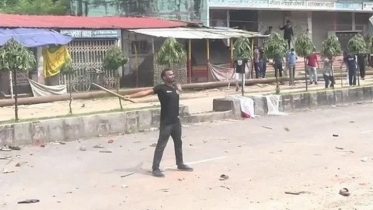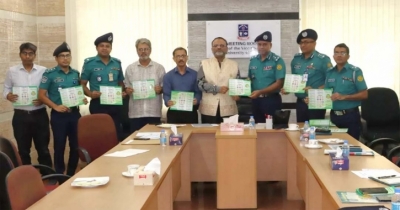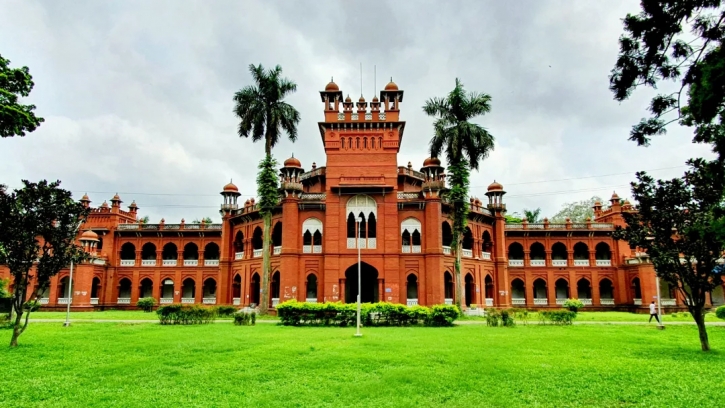
On the night of 17th July 2024, Dhaka University (DU) witnessed a major upheaval as residential students across its various halls collectively pushed leaders and activists of Bangladesh Chhatra League (BCL) out of the campus.
United in their demands, students compelled their hall tutors and provosts to sign a notification mandating the end to political activities in DU halls, abolishment of the notorious gonoroom (overcrowded common living room) and guestroom cultures, and the enforcement of full administrative control within the halls.
These demands, borne out of years of struggle against systemic oppression, reflect the students’ desire for a secure and academically conducive environment for future residents, free from political coercion.
In a series of interviews, former and current students recounted their experiences within the gonoroom and guestroom systems, describing how these arrangements turned their university lives into a sustained ordeal.
A Living Nightmare
Emon Islam, a fourth-year student of Bangabandhu Hall, described the gonoroom as a ‘terrible curse’. Freshers, often hailing from rural areas, would enter DU halls with dreams and optimism, only to encounter overcrowded rooms.
Emon recounted the suffocating reality of having over 40 students crammed into a space meant for six to eight. “We had to cuddle to secure a spot to sleep each night. When the room filled up, the only alternative was the mosque, but even it would often be packed,” he said.
Living in gonoroom during the summer months was, he noted, an unbearable ordeal.
The room’s air was thick with allergens, and the walls were infested with bugs – consequences of the high density of occupants.
Emon’s health deteriorated after only a few months, forcing him to leave the hall for alternative accommodation.
Following the recent changes, he has since returned to live in a formally allocated room, optimistic about the university’s commitment to reform.
A ‘Concentration Camp’ of Political Pressure
Amirul Karim, a student at DU’s English Department, experienced relentless pressure within the halls due to political coercion.
He recalled entering university brimming with dreams, only to watch them crumble under the hall’s political hierarchy. “The first night was a celebration, but on the second night, things took a dark turn. They imposed unnecessary rules and warned us: to stay, we had to blindly support the Chhatra League.”
Forced into gonorooms, students not only lost their right to a legitimate seat but were also stripped of their freedom of expression.
Amir compared the gonoroom environment to a ‘political concentration camp’, where even the simplest movements and speech were monitored and controlled.
Reflecting on the cycle of intimidation, he shared how he was often pushed to the edge: “There were nights I couldn’t find a spot in the gonoroom and had to sleep in the mosque. The constant mental strain impacted my studies, and I barely scraped through my exams.”
Covid-19, ironically, was a temporary escape for him, but the return to university in late 2021 saw conditions in the gonoroom worsen.
Endless Nights at the Corridor
For Muzammel Haque, a fourth-year student of Sir Salimullah Muslim Hall, the lack of allocated rooms forced him into a transient lifestyle within the halls.
Originally from Narayanganj, Muzammel came to DU in 2019 but found no specific room allocated for to him. For years, he lived between corridors and mosques, eventually settling in the hall corridor along with other students.
In winter, they would hang posters and banners to block the cold breeze, attempting to retain some warmth.
However, the effects were minimal, and living in such conditions had lasting impacts on his health. “Both my parents are sick, and now, so am I. This was never the life I envisioned when I came to Dhaka University,” he said, tearfully reflecting on the years spent in hardship.
A Future Without Gonorooms?
Tamjid Hossain, from Kabi Jasim Uddin Hall, deemed his gonoroom experience the ‘worst chapter of his life’.
He described sharing a room designed for four people with over 35 others. “The April-May heat was unbearable. Many times, we couldn’t sleep at all, and some nights, we’d end up in the mosque.”
The guestroom, another product of the gonoroom system, was no different.
Tamjid equated it to a ‘remand room’, where the BCL often conducted impromptu interrogations.
Rebellious students were frequently targeted, with some accused of being affiliated with opposing organisations. There were nights when Tamjid and his friend Moula would sleep outdoors by the VC Chattar to evade guestroom harassment.
The gonoroom’s shadow did not only loom over first-year students.
The spectre of forced allegiance, character assassination and sudden eviction haunted second-year students and beyond, especially those whom BCL leaders suspected of disloyalty. Fabricated accusations were common tactics, used to pressure ‘rebellious’ students into compliance or force them out of the halls altogether.
Now, with these student demands formally acknowledged and signed by DU authorities, students across the university’s residential halls are hopeful that gonoroom and guestroom practices will remain relics of a troubling past.
They envision a Dhaka University where political affiliation does not dictate a student’s living conditions, and where incoming freshers can live without fear, focusing instead on their studies and dreams for the future.

